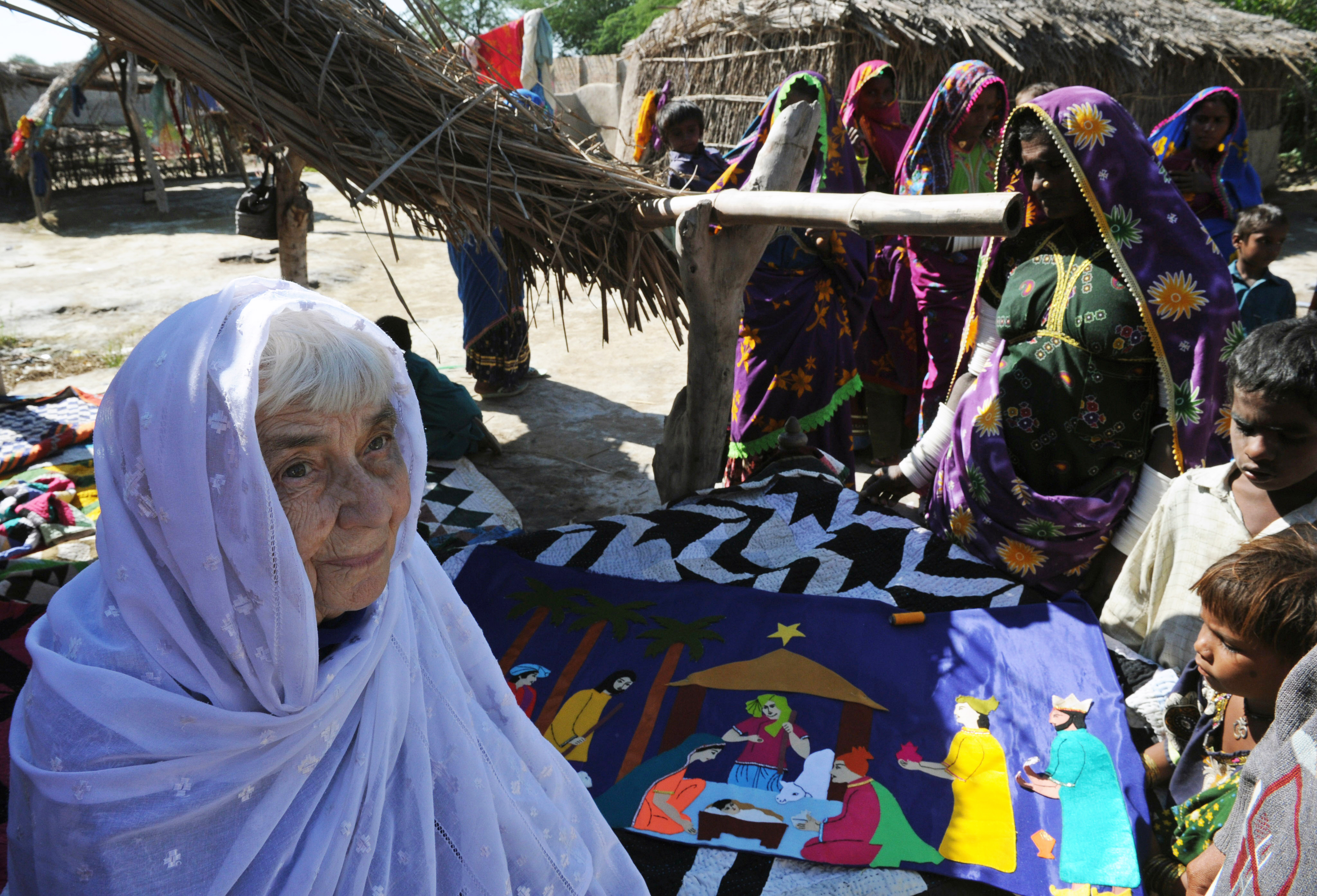The extraordinary life of Ruth Pfau
The example of this great humanitarian reminds us that the world, even at the worst of times, can be full of light


It is one of the most unfortunate journalistic lacunae of our time that very few Americans are familiar with the work of one our greatest humanitarians, the late Dr. Ruth Pfau.
The German-born nun and physician devoted more than half a century of her life to the cause of eradicating leprosy in Pakistan and died last week at the age of 87. Even as I write this no report of her death, much less the lengthy obituary she deserves, has appeared in The New York Times; none of her books are available in print in the English language; even most Catholics are not aware of her existence.
This is supremely regrettable.
The Week
Escape your echo chamber. Get the facts behind the news, plus analysis from multiple perspectives.

Sign up for The Week's Free Newsletters
From our morning news briefing to a weekly Good News Newsletter, get the best of The Week delivered directly to your inbox.
From our morning news briefing to a weekly Good News Newsletter, get the best of The Week delivered directly to your inbox.
I say this not only because a greater awareness of Pfau's tireless efforts fighting a vicious disease might have brought with it more generous financial support, though this would, of course, have been welcome. More important is her splendid example of Christian witness and charity, her unceasing love for the sick and the poor, her unyielding sacrifice. This world is never a very bright place, and all of us could do with a few more lamps.
Pfau was born in Leipzig, Germany, in 1929. Her earliest memories were of a world disfigured by evil: the flash of swastikas, the inexplicable disappearance of Jewish schoolmates, the screams of friends and neighbors during Allied bombing campaigns. At the end of the war came the partition of her country; as a teenager she carried only a stuffed animal and a handful of other personal items and walked by night across the countryside to escape the Soviet occupation and join her father in West Germany.
As an undergraduate studying medicine at Mainz she met a Dutch concentration camp survivor who spoke of her ability to forgive those who had imprisoned her. Her encounter with this exemplar of mercy changed Pfau indelibly. She was received into the Catholic Church and after completing her medical studies she joined the Daughters of the Heart of Mary.
Later, as a missionary nun assigned to work in Bombay she found herself held up with visa issues in Karachi, Pakistan. Here by another providential turn of events she happened to visit a so-called leper colony in which sufferers from Hansen's disease had been left to die in conditions of indescribable agony by those who should have been responsible for their care. In this hell of open sewers, rodents ate the flesh of the living; men, women, and children crawled starving on all fours through slime and mud as their bodies succumbed to an unimaginable decay.
A free daily email with the biggest news stories of the day – and the best features from TheWeek.com
Pfau saw this and refused to leave. At first she worked with nothing but a tent. Three years later she was able to found a clinic, the first of what would eventually be more than 150, many of them in areas of astonishing remoteness. Her patients, many of them children, often came to her from caves or remote hills where they had been left by relations who feared that seeking treatment for them would spread their infection.
In 1996, Pakistan was declared officially leprosy-free, and the vast network of hospitals and clinics Pfau established continue to this day to provide treatment for a variety of illnesses, including tuberculosis, and to coordinate relief services in the event of natural disasters.
In the words of Prime Minister Shahid Khaqan Abbasi, Pfau "may have been born in Germany, but her heart was always in Pakistan," where she came "at the dawn of a young nation, looking to make lives better for those afflicted by disease, and in doing so, found herself a home." It is unsurprising that in her adopted country she was one of the most admired living people or that, in this officially Muslim nation, her Catholic requiem at St. Patrick's Cathedral in Karachi will be an official state funeral.
"I was never meant to just sit and watch," Pfau told Der Spiegel in an interview two years ago. "That is the worst."
It certainly is. The temptation to dwell overmuch on the hideousness and decay of our fallen world at the expense of those things which are true and good and beautiful is never ending. So too is the inclination to despair.
In the rotting flesh of Pakistan's lepers Pfau saw the beauty of men and women made in the image of God. Her example reminds us that the world, even at the worst of times and in the most wretched and miserable of places, can be full of light. It is one with which none of us can afford to be unfamiliar.
Matthew Walther is a national correspondent at The Week. His work has also appeared in First Things, The Spectator of London, The Catholic Herald, National Review, and other publications. He is currently writing a biography of the Rev. Montague Summers. He is also a Robert Novak Journalism Fellow.
-
 Luke Larsson’s prawn and pomelo salad
Luke Larsson’s prawn and pomelo saladThe Week Recommends Pomelo-sweetened prawns meet spicy dressing and herbs in a sharp Thai salad
-
 Podcasts at the Golden Globes: a serious business
Podcasts at the Golden Globes: a serious businessTalking Point Amy Poehler won the inaugural award – but there were some glaring omissions
-
 What are Donald Trump’s options in Iran?
What are Donald Trump’s options in Iran?Today's Big Question Military strikes? Regime overthrow? Cyberattacks? Sanctions? How can the US help Iranian protesters?
-
 Iran cuts internet as protests escalate
Iran cuts internet as protests escalateSpeed Reada Government buildings across the country have been set on fire
-
 US nabs ‘shadow’ tanker claimed by Russia
US nabs ‘shadow’ tanker claimed by RussiaSpeed Read The ship was one of two vessels seized by the US military
-
 How Bulgaria’s government fell amid mass protests
How Bulgaria’s government fell amid mass protestsThe Explainer The country’s prime minister resigned as part of the fallout
-
 Femicide: Italy’s newest crime
Femicide: Italy’s newest crimeThe Explainer Landmark law to criminalise murder of a woman as an ‘act of hatred’ or ‘subjugation’ but critics say Italy is still deeply patriarchal
-
 Brazil’s Bolsonaro behind bars after appeals run out
Brazil’s Bolsonaro behind bars after appeals run outSpeed Read He will serve 27 years in prison
-
 Americans traveling abroad face renewed criticism in the Trump era
Americans traveling abroad face renewed criticism in the Trump eraThe Explainer Some of Trump’s behavior has Americans being questioned
-
 Nigeria confused by Trump invasion threat
Nigeria confused by Trump invasion threatSpeed Read Trump has claimed the country is persecuting Christians
-
 Sanae Takaichi: Japan’s Iron Lady set to be the country’s first woman prime minister
Sanae Takaichi: Japan’s Iron Lady set to be the country’s first woman prime ministerIn the Spotlight Takaichi is a member of Japan’s conservative, nationalist Liberal Democratic Party
